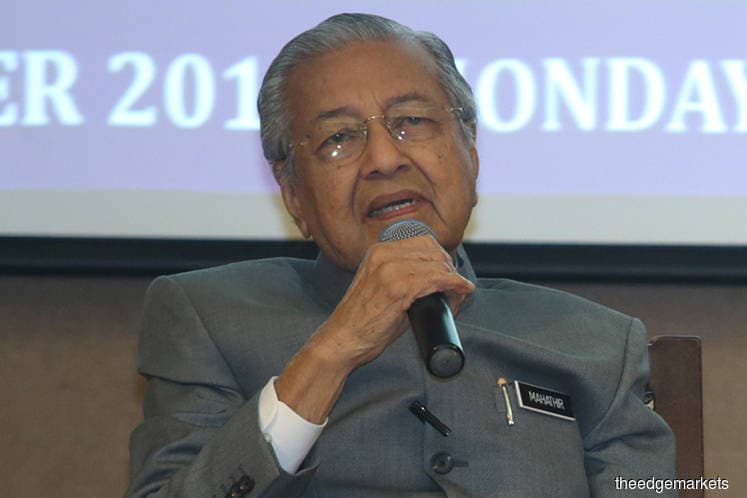
This article first appeared in The Edge Financial Daily on November 20, 2019
KUALA LUMPUR: Tun Dr Mahathir Mohamad said Malaysia will not hesitate to take countermeasures, including to seek World Trade Organization’s (WTO) intervention if discriminatory trade practices against palm oil producing countries are found violating international laws.
The prime minister said Malaysia and other palm oil producing nations are stepping up efforts among global stakeholders to disseminate accurate information about sustainable oil palm plantations and to counter false allegations concerning palm oil with credible facts.
“Despite our best efforts, if certain importing countries choose to impose discriminatory trade barriers against palm oil producing countries, we must not keep silent nor hesitate to take countermeasures.
“If there is any evidence that such discriminatory trade practices are in violation of any international laws, Malaysia and other producing countries under the Council of Palm Oil Producing Countries must seek intervention from the WTO,” he added.
Nonetheless, Dr Mahathir observes that buyer countries have continued to express their desires in buying Malaysian palm oil so far.
“Until we find a very positive discrimination, we will not take action,” he told reporters on the sidelines of the International Palm Oil Congress and Exhibition 2019 organised by the Malaysian Palm Oil Board here yesterday.
In his keynote address, Dr Mahathir condemned the negative publicity campaigns against palm oil for having reasons intertwined with political and economic agenda in attacking the palm oil industry by anti-palm oil campaigners and Western non-governmental organisations.
“The Delegated Regulation which has been found to be lacking in transparency, scientific credibility and accurate assumptions to reflect the actual sustainable practices in the industry has misled the European Parliament to phase out the use of palm-based biofuel in the transportation sector by 2030. Furthermore, it is biased against palm oil biofuels compared with other crop-based biofuels,” he said.
He defended palm oil production for being more efficient compared to other oils and seeds, as it requires the least land area but yet produces the highest yield.
“I want to stress that oil palm plantation is not a major cause of deforestation, as it accounts for only 0.4% of the total global agricultural area. In Malaysia, oil palm is mainly planted in designated agricultural land and the opening of new plantation has plateaued in recent years and will remain as such.
“Malaysia’s commitment towards sustainability can be traced way back in 1992, at the Rio Earth Summit, where I had then pledged to maintain at least 50% of our landmass under forest cover. Today in 2019, after almost three decades, I am proud to say that we have not reneged on that pledge. The latest figures showed about 55% of Malaysia’s 33 million hectares of land area is under forest cover, exceeding Malaysia’s initial pledge at the Rio Earth Summit,” he added.
Themed “Balancing sustainability pillars”, the biennial congress and exhibition this year revolves around aspects of sustainable production of palm oil with a focus on the latest research and practices in the global oils and fats market.